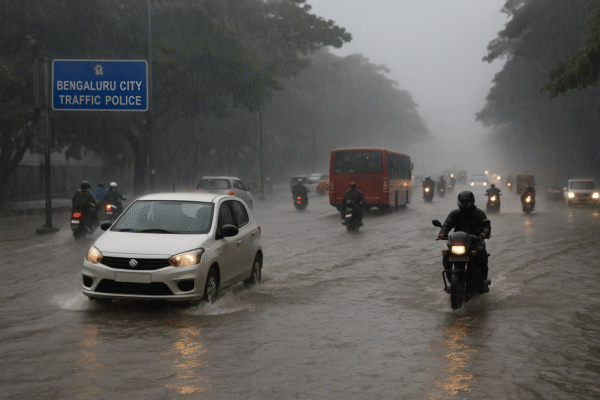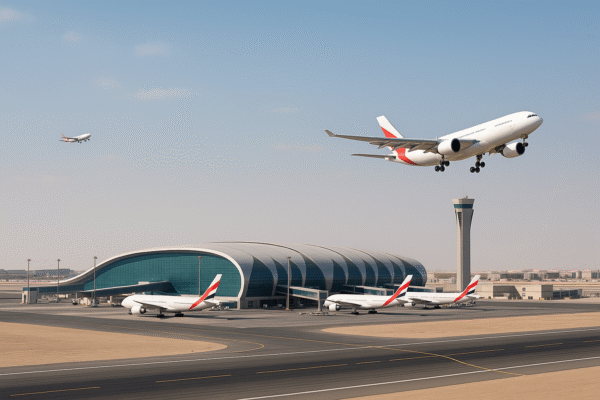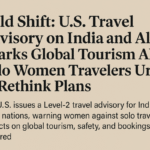Tourist Taxes Rise in 2025: Travelers Rethink Europe and Global Destinations Amid New Fees
In 2025, the travel landscape is undergoing a dramatic shift as countries across Europe and around the globe roll out sweeping increases in tourism taxes. Destinations such as Greece, Italy, the United Kingdom, Spain, and Mexico—long considered staples on international travel itineraries—are now implementing new levies that are reshaping the very economics of travel. Add to this the policy changes in Portugal, the Netherlands, Switzerland, Slovenia, Thailand, Norway, and the Maldives, and the message is clear: vacationing is getting pricier.
While these taxes are intended to support infrastructure, combat overtourism, and generate municipal revenue, the consequences are reverberating across the tourism sector. Tourists from North America and Europe are cancelling bookings, adjusting itineraries, and seeking out destinations that haven’t yet adopted such aggressive taxation.
From Dream Destinations to Fee-Heavy Stopovers
In Greece, Italy, and the UK, tourism tax hikes are no longer minor policy changes—they are major deterrents for cost-sensitive travelers. Italy has expanded its city-based tourist taxes, while cities like Venice are charging €5 for day visitors and up to €10 without advance booking. In Rome, Florence, and Milan, overnight tourists pay between €3 and €7 per night.
Meanwhile, Greece has introduced a new €20 cruise passenger tax in high-volume summer months for islands like Santorini and Mykonos, citing the environmental and logistical strain of daily cruise visitors.
In the UK, Edinburgh is leading with a 2026 hotel room tax rollout, followed by Glasgow in 2027, which will implement a 5% levy on all commercial accommodations. These charges sit atop existing travel-related costs like the £16 Electronic Travel Authorisation (ETA) fee and Air Passenger Duty charges ranging from £15 to £102. For a European family of four, this could mean over £400 in additional costs—before even stepping into a museum or historic site.
Tax Hikes Cause Ripple Effects Across the Industry
Travelers are responding with their wallets. Many are shortening stays, skipping high-tax cities, or booking accommodations just outside tax zones to avoid added charges. Others are opting for alternative destinations altogether—shifting from Edinburgh to Manchester or swapping Venice for tax-lighter Eastern European cities.
Secondary tourism markets, once eager to grow visitor numbers, are especially vulnerable. Unlike major capitals such as Paris or London, cities like Glasgow or Lisbon don’t have year-round tourism appeal to absorb sudden price increases. In these locations, added fees can push out both domestic and international visitors, straining small businesses and local economies.
Cruise Industry Pushback
In Greece, cruise lines are voicing frustration over the new €20 day-tripper tax. Implemented quickly and with limited notice, the policy has caught many operators off guard. While local authorities defend the move as necessary to manage overtourism and cover municipal expenses, the industry argues that sudden cost increases may lead to itinerary changes or reduced port calls in future seasons.
Cruise taxes are now also being considered by other coastal nations with fragile ecosystems and overcrowded ports. While the intent is sustainability, the rollout must balance transparency, timing, and collaboration with industry stakeholders.
Cities Test New Models—But Are They Effective?
Some cities apply flat-rate taxes year-round, but experts suggest seasonal or dynamic pricing may be more effective. Charging higher rates during peak seasons (June to September) and lowering or waiving fees in the off-season can help distribute tourist flow more evenly and support businesses during slower months.
The Balearic Islands, for example, have implemented a seasonal tax on accommodations, charging up to €6 per night in the summer and offering exemptions during winter. This approach is being viewed as a potential model for cities like Edinburgh and Amsterdam.
Transparency and Traveler Trust
What frustrates travelers the most isn’t always the tax itself—but how it’s presented. Hidden fees, lack of upfront disclosure, and last-minute changes create a sense of being misled. In a time when flight prices and accommodation rates are already climbing, undisclosed tourist levies can be the tipping point.
Tourism taxes are not inherently bad. Used well, they can fund transportation upgrades, preserve historic sites, and manage waste in overcrowded cities. But poorly communicated policies risk alienating visitors and damaging a destination’s long-term appeal.
Emerging Winners: Tax-Free and Value-Based Destinations
As iconic destinations pile on taxes, a new class of travel hotspots is emerging—places that offer scenic charm, affordability, and minimal surcharges. Countries in Eastern Europe, parts of Latin America, and secondary destinations in Asia are seeing increased interest from travelers who want to stretch their budgets without sacrificing experience.
Places like Bulgaria, Georgia, Albania, and Vietnam are increasingly appealing not only for their natural beauty but also their traveler-friendly economics. These locations could see significant inbound growth in the next five years if European tax policies continue trending upward.
The Verdict: Can the Travel Dream Survive the Tax Climb?
Tourism remains one of the most resilient sectors of the global economy, but even it has limits. Travelers will pay extra for authenticity, beauty, and convenience—but only to a point. As the cost of enjoying Europe’s most famous cities and beaches climbs, the industry must take care not to overreach.
Governments and tourism boards need to balance fiscal responsibility with hospitality. Tourists aren’t ATMs—they’re ambassadors, storytellers, and economic catalysts. If cities want to continue reaping tourism’s benefits, they must adopt smarter, more transparent taxation strategies that build trust rather than resistance.
Final Thought:
In the evolving game of global tourism, the destinations that thrive will be those that manage growth wisely, communicate openly, and never forget that travelers have choices. As the travel economy matures in 2025, it’s not just about raising revenue—it’s about raising the bar on what it means to be a truly welcoming destination.
For more travel news like this, keep reading Global Travel Wire















